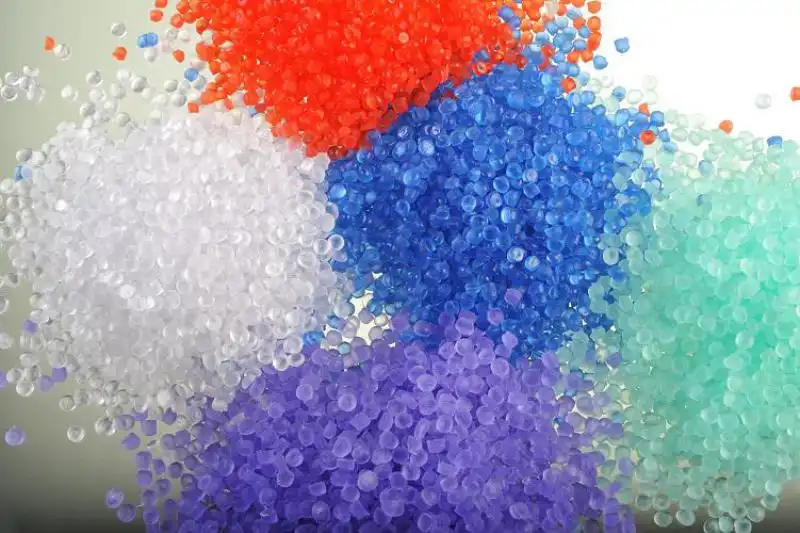Messi Biology states that Magnesium Carbonate (MgCO₃) has multiple applications in PVC (Polyvinyl Chloride) processing, primarily focused on improving processing performance, enhancing product quality, and reducing costs. PVC is a common plastic material widely used in pipes, flooring, window frames, cable insulation, and other fields. As a common inorganic filler and stabilizer, magnesium carbonate plays an important role in PVC processing.

- Improve Processing FluidityMaintaining good fluidity is crucial in PVC processing, especially during extrusion and injection molding. As a filler, magnesium carbonate can improve the fluidity of PVC by reducing the viscosity of the melt. The particle structure and physical properties of magnesium carbonate can enhance the plasticization effect of PVC resin, thereby reducing equipment load and shortening processing cycles during processing. It has a significant effect on improving the fluidity of PVC melts, especially in large-scale production, which can improve production efficiency and the quality of finished products.
- Enhance Thermal StabilityPVC is susceptible to thermal degradation when exposed to high temperatures during processing. As a thermal stabilizer, magnesium carbonate can improve the thermal stability of PVC to a certain extent and reduce harmful substances (such as hydrogen chloride) produced during processing. By decomposing into magnesium oxide (MgO) and carbon dioxide (CO₂), magnesium carbonate can absorb heat, thereby mitigating the thermal degradation of PVC. Its addition helps extend the temperature window for PVC processing, so that no obvious thermal degradation problems occur when processing at higher temperatures.
- Optimize Plasticization PerformanceThe plasticization performance of PVC is a key factor determining its processing quality. Magnesium carbonate has a certain plasticizing effect, which can improve the plasticization efficiency of PVC and reduce energy consumption during processing. In the extrusion and injection molding processes, the interaction between PVC particles and plasticizers may be affected by various factors. Adding an appropriate amount of magnesium carbonate helps to enhance the plasticization effect, making the PVC more uniformly plasticized and reducing defects in the molding process, such as bubbles and flow marks.
- Enhance Abrasion ResistanceAs an inorganic filler, magnesium carbonate also enhances the abrasion resistance of PVC. Its particles can form a hard network structure in PVC, thereby improving the wear resistance of the product. Adding magnesium carbonate can extend the service life of products and maintain their appearance and function, especially when manufacturing PVC products that are susceptible to wear, such as flooring and window frames.
- Improve Surface Quality of ProductsMagnesium carbonate, as a filler, can improve the surface quality of PVC. It has good dispersibility and can be evenly mixed with the resin during PVC processing, avoiding the common filler agglomeration phenomenon and ensuring a smooth and clean product surface. In the production of PVC pipes, profiles, and other products, adding an appropriate amount of magnesium carbonate helps improve the surface aesthetics of the finished product and reduce surface defects.
- Adjust TransparencyAlthough magnesium carbonate itself is a white inorganic filler, excessive use may affect the transparency of PVC. However, in some applications, appropriate amounts of magnesium carbonate can adjust the transparency of PVC. For example, in the production of PVC products that do not require high transparency, the addition of magnesium carbonate can improve the opacity or whiteness of the product, making it more visually appealing.
- Improve UV ResistancePVC products used outdoors are often exposed to ultraviolet radiation, leading to material aging and performance degradation. Magnesium carbonate has a certain ultraviolet absorption effect, which can improve the ultraviolet resistance of PVC to a certain extent. In this way, magnesium carbonate helps to improve the weather resistance of PVC products and delay their aging process, especially suitable for building materials, window frames, and external pipelines and other PVC products exposed to sunlight.
- Reduce CostsThe cost of magnesium carbonate is relatively low, so when used as a filler in PVC, it can effectively reduce the production cost of materials. In some applications where performance requirements are not so strict, using magnesium carbonate to replace other expensive fillers (such as talc powder, titanium dioxide, etc.) is a cost-effective choice. By reasonably proportioning magnesium carbonate and other fillers, the relationship between cost and performance can be balanced.
- Improve Mechanical PropertiesThe use of magnesium carbonate as a filler in PVC can improve the hardness and rigidity of PVC products, thereby improving their tensile, flexural, and impact mechanical properties. Especially in some applications with high strength requirements, magnesium carbonate can improve the overall structural strength of PVC and enhance its durability in use.
- Synergistic Effects with Other AdditivesMagnesium carbonate can have synergistic effects with other additives (such as stabilizers, plasticizers, lubricants, etc.). For example, the combined use of magnesium carbonate and calcium-zinc stabilizers can better improve the thermal stability and processing performance of PVC. Through reasonable proportioning, the overall performance and processing efficiency of PVC can be further improved without sacrificing other properties.
Summary
Magnesium carbonate, as an important inorganic filler and stabilizer, has multiple functions in PVC processing. It can not only improve processing fluidity and optimize plasticization performance, but also improve thermal stability, enhance abrasion resistance, and improve surface quality. In addition, the cost advantage of magnesium carbonate and its synergistic effect with other additives make it widely used in PVC processing. With the advancement of technology, the application fields of magnesium carbonate are expected to further expand, and its advantages in environmental protection, weather resistance, and cost control will become more prominent.
